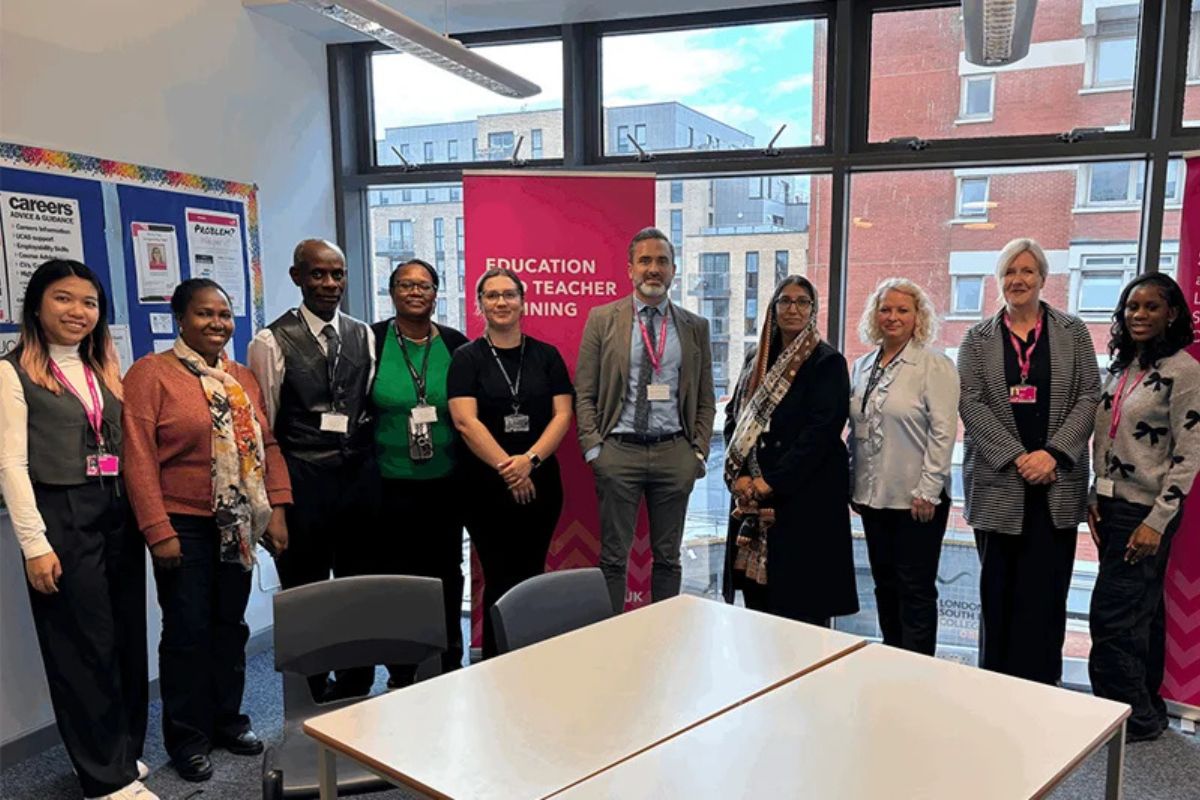Education and Business the Driving Forces behind Equity in the Workplace

Recruiting and retaining talented staff is one of the biggest challenges facing businesses at the moment. Our survey data shows that this challenge is a more pressing concern than energy prices, taxes, or red tape. Filling skills gaps will require collaboration between business and education to ensure that everyone, regardless of their background, is equipped with the skills they need to thrive in the workplace.
Is striving for equity in the workplace the responsibility of employers and our business community?
There is much discussion and debate on how businesses can do more to implement and embed workable equity, diversity, and inclusion measures to ensure that employees are treated fairly at work. Such measures are important for both fair progression and wider business growth; research by McKinsey found a clear correlation between companies’ gender and ethnic diversity and profitability, concluding that diversity is a source of competitive advantage and a key enabler of growth[1]. But the appetite for diverse talent can be most effectively achieved through the power of education.
Attracting diverse talent is an important topic across the education and business communities. Diverse talent refers to employees or employee pools coming from different (or underrepresented) social or cultural backgrounds.
So, how can education and business communities work together to achieve a diverse workplace that is skilled at the appropriate level?
The following are some key measures that employers can embed into their working environment to retain diverse talent:
- Empowering employees. This is a very good measure to motivate all employees that they are part of an organisation’s wider decision-making process.
- Lifelong Education and Training Schemes for all employees to sustain a workforce with broad perspectives
- Effective and inclusive recruitment policies to attract diverse talent from the on-set
- Underpinning decisions with employee satisfaction data
However, recruiting and retaining talented staff is one of the biggest challenges facing businesses at the moment. Our survey data shows that this challenge is a more pressing concern than energy prices, taxes, or red tape. Filling skills gaps will require collaboration between business and education to ensure that everyone, regardless of their background, is equipped with the skills they need to thrive in the workplace.
Education plays a critical role in equipping students with the skills and knowledge they need to thrive in the workplace. The education sector has the power to create the critical building blocks of students’ character, behaviours, and confidence. Education can instil skills like critical thinking, empathy, and an ability to make evidence-based decisions, all of which are essential skills for the modern workplace.
These employability skills are a key determinant of success in the workplace, but as the education system has become increasingly geared towards meeting accountability measures which prioritise exam results, is there a risk that these skills will fall by the wayside? And what does this mean for students from disadvantaged backgrounds, who are less likely to have access to the kinds of extracurricular activities outside of school which help to develop these skills?
As well as developing employability skills through the K12 education system, ongoing learning and development are crucial in helping people to adapt to a rapidly changing and diverse modern workplace. Skills-based learning programmes, courses, and qualifications can equip employees with the skills and knowledge they’ll need to build an inclusive, diverse culture in the workplace.
There is also evidence that embedding inclusion into education delivery itself helps to equip students with the skills they need to thrive in a diverse workplace. According to the American Council on Education, “…diversity in their student bodies, faculties, and staff is important for them to fulfil their primary mission: providing a high-quality education”. (ACE Board of Directors, June 2012). The American Council of Education also argues that diversity in education can instil far-reaching change in the following areas:
- Diversity enriches the educational experience
- It promotes personal growth-and a healthy society.
- It strengthens communities and the workplace.
- It enhances America’s economic competitiveness.
So, it is clear that if diversity begins at the education level this allows people to develop the critical building blocks and skills needed to be successful in a broad working world. Education can support people with their confidence, self-motivation, cultural engagement, critical thinking, problem-solving, effective communication and intellectual engagement.
Collaboration between education and business is, therefore, essential to ensuring that changes to the workplace do not leave disadvantaged groups further behind. The implications of advancements in AI on the skills needed in the workplace are not yet fully understood, but it is clear that automation risks exacerbating existing divisions. Upskilling and reskilling existing workers, in addition to updating the skills taught in schools, will be crucial to ensuring that existing divisions are not entrenched or worsened.
How can education and business work together to foster an equitable workforce?
Last year, the IoD carried out research on the future of equity, diversity, and inclusion in the workplace[2]. A key recommendation to businesses focussed on retaining and developing diverse talent in their organisations, in order to develop pipelines of diverse talent for senior leadership positions. Education is central to this aim; investing in high-quality training and development is a key component of equity, diversity, and inclusion strategies.
We have also been working to increase employer awareness of the ways that they can support the education system in delivering the skilled workforce of tomorrow, for example through offering T Level placements and other forms of work experience. By expanding access to high-quality work experience placements, employers and education providers can help to develop employability skills more equitably.
We must all remember employment is the ultimate destination and that the power of a broad education experience can support future diverse employees with achieving their goals and ambitions in their chosen careers.
By Ms Alex Hall-Chen – Principal Policy Advisor Sustainability, Skills and Employment, Institute of Directors and Ms Sofia Azam – IoD National Spokesperson for Equity, Diversity and Inclusion Ambassadors, Institute of Directors
FE News on the go…
Welcome to FE News on the go, the podcast that delivers exclusive articles from the world of further education straight to your ears.
We are experimenting with Artificial Intelligence to make our exclusive articles even more accessible while also automating the process for our team of project managers.
In each episode, our thought leaders and sector influencers will delve into the most pressing issues facing the FE sector, offering their insights and analysis on the latest news, trends, and developments.
[1] Hunt, V., Yee, L., Prince, S., and Dixon-Fyle, S. (2018). Delivering Through Diversity. McKinsey and Company.
[2] Institute of Directors, The Future of Business: harnessing diverse talent for success, October 2022











Responses